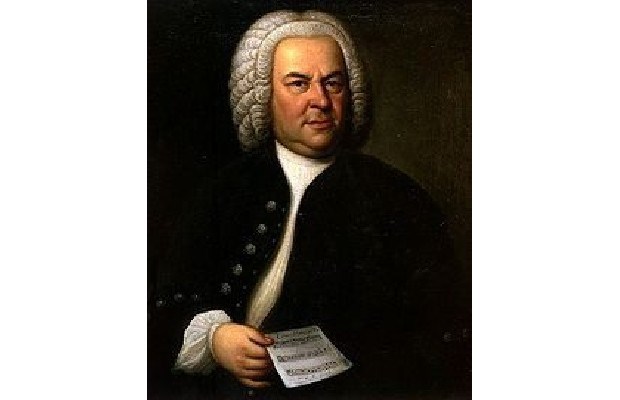IN CONCERT
What: Victoria Philharmonic Choir: Bach, Mass in B Minor, conducted by Peter Butterfield
When/where: Saturday, 8 p.m., First Metropolitan United Church (932 Balmoral Rd., at Quadra Street)
Tickets: Adults $30, students $15, 12 and under free. At Ivy's Bookshop, Munro's Books, Cadboro Bay Book Co., Tanner's Books, La Tavola Kitchenware, and Long and McQuade.
The Victoria Philharmonic Choir will bring its 2011-12 season to a close Saturday evening with nothing less than Bach's Mass in B Minor, a twohour choral-orchestral masterpiece - in musicological terms, a big chunk o' change. There has been a lot of Bach on offer here recently, from early-music specialists as well as mainstream ensembles, so it is perhaps fitting, as the concert season winds down, that dozens of local musicians should assemble to perform the work Bach himself treated as his testament.
In his last decade, Bach undertook a series of monumental, encyclopedic works, drawing on a wide range of genres and techniques, with the aim of perfecting various aspects of his style and leaving to posterity definitive documents of his art; these works included The Art of Fugue, the Goldberg Variations, Book 2 of The Well-Tempered Clavier, the Canonic Variations on Vom Himmel hoch, and the Musical Offering. The last of them - his final creative project - was the Mass, which occupied him into 1749, until blindness and failing health stilled his pen. (He died the following year.)
The work's roots, however, were older. In 1733, as part of an effort to secure an honorary title from the Saxon court at Dresden, whose splendid musical establishment he admired, Bach put together the opening Kyrie and Gloria sections of the Mass and presented them to the Elector of Saxony along with a flowery, flattering letter. But his application was ignored, his music shelved and forgotten.
In 1748, Bach returned to this music with the aim of adding the remaining Mass sections - Credo, Sanctus, Benedictus, Agnus Dei. His reasons are not known, but he had never composed a complete Latin Mass before and probably relished the opportunity to stake a claim, belatedly, in this venerable genre.
The Mass was ultimately more compiled than composed: Almost all of the movements were (or probably were) adapted from his earlier works, though only in a few cases is the original source known. (The oldest identified source dates from 1714.)
This is a magnificent example of a "cantata Mass," in which the longer texts are divided into separate movements set variously as solos, duets and choruses, and the overall structure is remarkably logical and symmetrical considering the heterogeneous source material. Throughout, Bach demonstrates great sophistication, versatility and originality in his handling of counterpoint, thematic development, ritornello and aria forms, and musical symbolism, though the Mass impresses for its stylistic and expressive range, too. The score includes Gregorian chants, archaic-sounding fugues, episodes of the most searing tragedy, but also spirited Baroque dances, florid, ingratiating arias and duets in the fashionable galant style, and choruses that out-Handel Handel in joyous celebration.
Most of the choral movements have five vocal parts, occasionally six or even eight, and Bach skilfully employs instruments both as massed forces and in chamber-music settings, making telling use of certain instruments as soloists or in pairs - flute, oboe, oboe d'amore, bassoon, horn, violin.
Today, this opulently scored work still challenges even professional performers, technically and interpretively (there's a reason you never see a Sing-Along B-minor Mass).
Saturday's performance, conducted by Victoria Philharmonic Choir music director Peter Butterfield, will feature about 80 voices, with the VPC augmented by members of 91原创Voices, a semi-professional chamber choir also directed by Butterfield (who lives in 91原创); choristers from the youth wing of 91原创Voices will also join in some movements. (Butterfield organized similar handsacrossthe-strait mergings of his choirs in 2010 and 2011, to perform Bach's St. Matthew Passion.)
The four vocal soloists, all of them familiar to local audiences and making return appearances with the VPC, will be soprano Anne Grimm, mezzo-soprano Sarah Fryer, tenor Benjamin Butterfield and baritone Nathaniel Watson.
The orchestra will comprise about two dozen members, playing modern instruments though giving attention to historical performance practices. Indeed, Peter Butterfield's own mentor was a leading early-music specialist, conductor John Eliot Gardiner, for whom he sang the tenor-solo part in the B-minor Mass, and Saturday's orchestra will include performers who have had considerable experience, locally and internationally, with period-instrument ensembles: flutist Soile Stratkauskas, bassoonist Katrina Russell, hornist Andrew Clark, violinist Christi Meyers and violist Mieka Michaux.
Butterfield says he is aiming for a performance that, while neither heavy nor hyper-refined, has an "epic and universal" quality, which is certainly appropriate to what is arguably Bach's greatest, most all-encompassing work.



